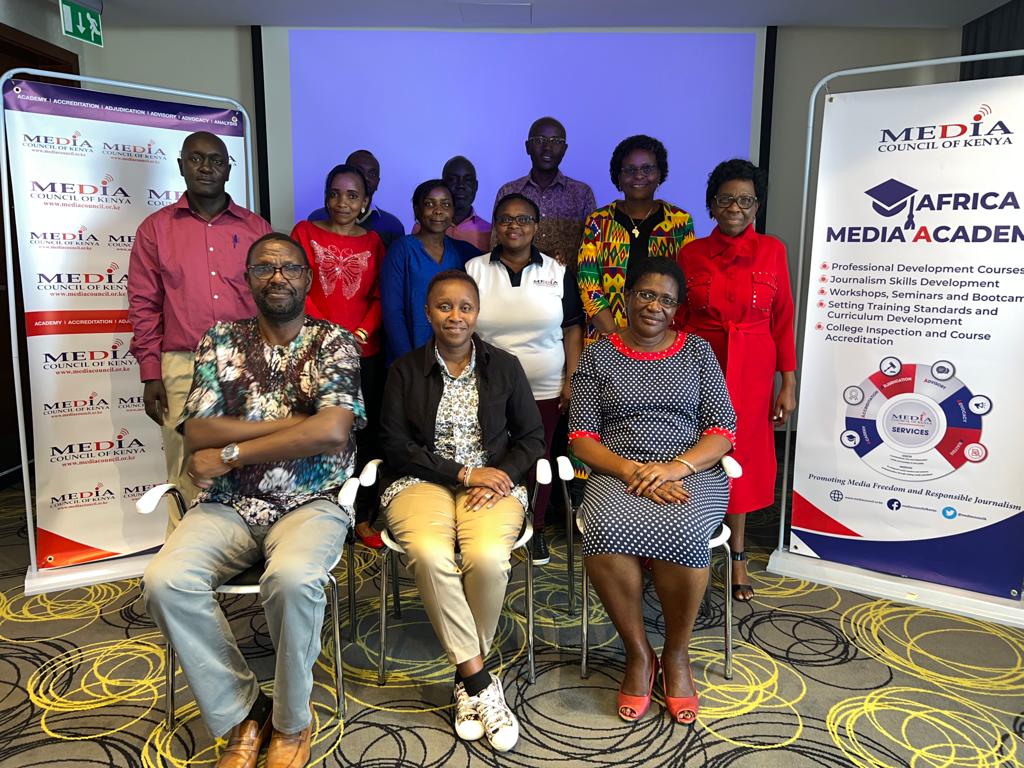
The Media Council of Kenya Director for Media Training and Development Mr Victor Bwire has underscored the importance of proper physical infrastructure and equipment in journalism training schools at the expense of quality human resource.
Speaking at a two-day inspection guidelines validation and Trainer of Trainers (TOT)workshop in Machakos, Mr Bwire noted that this has undermined the quality of journalism in the country which had an impact on national development.
"As part of its mandate of setting the standards for training journalists in the country, the Media Council of Kenya has developed a diploma in journalism curriculum”, he said.
He further stated that the Council has developed guidelines for inspection and accreditation to ensure that colleges have the requisite infrastructure, equipment, and personnel to effectively teach the curriculum.
“The Africa Media Academy, under whose auspices the college accreditation and inspection falls, is a major strategic focus for the Council because it is key in improving the standards of journalism in the country”, noted Mr Bwire.
Mr Bwire urged the inspectors to be aware of the unique circumstances of the colleges due to the fact that our approach is facilitative rather than punitive.
“We assess with a view of helping to improve and not necessarily wielding a big stick”, said Mr Bwire.
Ms Christine Nguku MCK Assistant Director for Training and Curriculum Development echoed his sentiments by urging the prospective inspectors to consider innovation and improvisation while assessing resources because the stress was on the “utility function rather than sophistication of the equipment”.
“Once we complete this exercise, we shall develop a framework for inspection and a checklist. We shall then have a pilot inspection", said Ms Nguku.
Dr Joseph Nyanoti of the United States International University Africa (USIU) said there is need to build a stronger linkage between media training colleges and the industry.
“Guest lectures, media house visits and internships are key in taking students closer to the world of work. The resultant two-way feedback will help in improve both the training and practice of journalism”, said Dr Nyanoti.
The pool of inspectors is drawn from middle-level colleges, universities, Kenya Institute of Curriculum Development, and the newsroom.